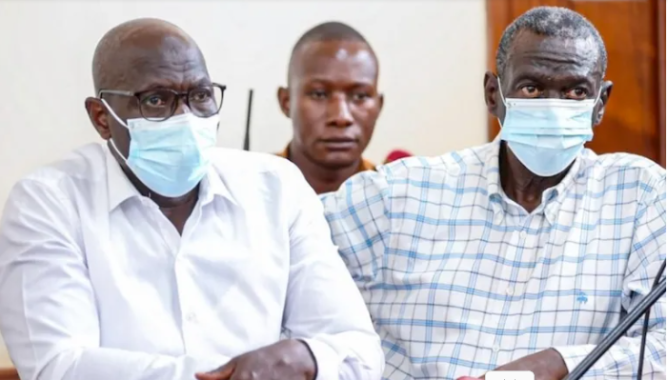Every June, MTN Uganda staff join hands across the country in the 21 Days of Y’ello Care campaign. What began as a corporate effort to boost healthcare, digital access, and youth empowerment has this year cast a sharp light on a crisis that cannot be ignored: Uganda’s persistently high teenage pregnancy rates.
During our visit to Alwi Health Centre III in Pakwach District, where MTN Uganda, ATC Uganda, and partners installed solar power, improved sanitation, and introduced digital tools, we met young girls, some barely teenagers, waiting for antenatal care. Their presence was a vivid reminder that behind the statistics are real lives, shaped by circumstances that threaten their futures.
In the West Nile sub-region, teenage pregnancy rates are among the highest in the country: 47.2% in Okoro, 37% in Nebbi, and 29% in Pakwach, according to Ker Alur kingdom data. In the Busoga region, over 30% of adolescent girls have experienced pregnancy, according to Ministry of Health figures. The story is no different in Tooro Kingdom. Nationally, a quarter of girls aged 15–19 become mothers—a rate that has stubbornly remained unchanged for nearly a decade and far exceeds neighbouring countries.
The impacts are deeply social and economic. Teenage pregnancy causes 22% of school dropouts among girls aged 14 to 18, with only a small percentage ever returning, according to the study carried out by the Ministry of Education and Sports in 2016 on a linkage between pregnancy and school dropout in Uganda. Early motherhood carries health risks such as obstetric fistula and anaemia, limits lifetime earnings, and traps families in cycles of poverty.
The financial cost is staggering. Families of teenage mothers spend over Shs 1.28 trillion annually on reproductive healthcare, equivalent to 21% of Uganda’s current national health budget. This figure excludes the broader economic losses from reduced productivity and workforce participation. The World Bank estimates that if all Ugandan girls completed secondary education, the country could prevent nearly one million child marriages and add $2.4 billion to its national welfare by 2030.
Private sector support, while valuable, cannot solve the problem alone. MTN Uganda has contributed by enhancing digital health systems in Ker Alur, providing tailoring kits and internet-enabled computers in Busoga, and supporting agribusiness and digital-skilling initiatives in Luwero and Kampala among others. These efforts demonstrate how technology and training can open doors for young people, especially girls. However, only 27% of Ugandans regularly use the internet, and just 10% of rural residents own or can use a computer, revealing a digital divide that limits these benefits.
Beyond infrastructure, the roots of teenage pregnancy lie in poverty, cultural norms, inadequate sex education, and limited access to contraception. Solutions require a coordinated response involving health services, schools, communities, and policymakers.
Conversations about reproductive health must become normal, not taboo—a view shared by Prince Vincent Ochaya Orach of the Alur Kingdom during community dialogues. Parents, teachers, and religious leaders should support adolescents, and policymakers must ensure that comprehensive sex education and contraception are accessible to all.
Uganda’s National Strategy to End Child Marriage and Teenage Pregnancy (2022–2027) provides a strong framework, but its success depends on consistent implementation, adequate funding, and clear accountability.
For that, the private sector is a vital partner, complementing government efforts by bringing innovation, resources, and commitment. Initiatives that combine digital solutions with vocational and health education can help break the cycle of early motherhood and economic dependency. However, scaling these efforts in alignment with national priorities and rigorous evaluation is essential.
Currently, Uganda stands at a crossroads. If one in four adolescent girls continues to become a mother, the country risks losing a generation of future workers, entrepreneurs, and leaders, and sacrificing billions in potential growth. On the other hand, by protecting and empowering young women, Uganda can unlock a demographic dividend that drives economic progress and competitiveness.
We now need a renewed action. Uganda’s future depends on how effectively communities, companies, and government agencies unite to confront and reverse the teenage pregnancy crisis. Only by pooling resources, expertise, and political will can the country ensure that its next generation reaches adulthood healthy, educated, and ready to shape Uganda’s destiny.
Juliet Kakayi Nsubuga is the Managing Director of Bayobab Uganda, a digital infrastructure subsidiary of MTN Group – https://www.youtube.com/watch?v=eT1X9bTTH6A&t=94s














